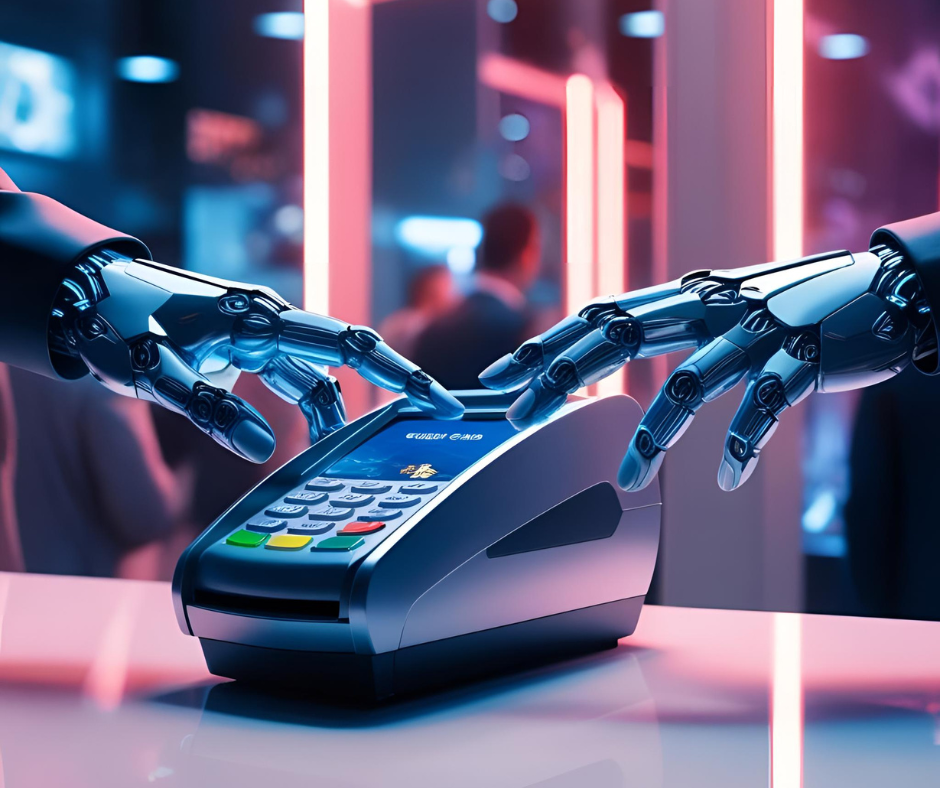AI vs. AI: The New Battleground for Financial Fraud (15.05.20259)
As artificial intelligence reshapes the financial industry, it is becoming a powerful double-edged sword. On one side, fraudsters are exploiting AI to execute more convincing, large-scale scams. On the other, AI is proving to be a critical tool for identifying and stopping fraud faster and more accurately than ever before. The battle is now algorithm vs. Algorithm - and the stakes are rising.
✨Get a Dissertation Research Proposal on this Topic
Fill in the form and we will shortly create and send you the research proposal on "AI vs. AI: The New Battleground for Financial Fraud " for free.

The Dark Side: AI Supercharges Social Engineering
In recent months, AI-driven fraud has evolved rapidly, combining traditional social engineering with cutting-edge tools like deepfake audio, synthetic identities, and highly personalized phishing. These attacks are more scalable, more believable, and harder to detect.
Scammers are using AI to:
- Clone executive voices to authorize fake wire transfers
- Automate phishing campaigns with human-like tone and grammar
- Generate synthetic identities for opening fraudulent accounts
- Deploy chatbots that mimic customer support to extract information
One case involved a multinational firm duped into wiring over $25 million after receiving a deepfake voice call impersonating the CFO. As AI becomes more accessible, such threats are no longer limited to nation-states or elite hackers - they are available to anyone with a laptop and an internet connection.
The Bright Side: AI as a Fraud-Fighting Force
While AI poses serious threats, it is also emerging as a key weapon in defending against financial fraud. Machine learning models can analyze vast amounts of transactional data in real-time, detect subtle anomalies, and adapt dynamically to new attack patterns.
Case in point: Stripe’s AI-driven fraud prevention
Stripe, one of the world’s leading payment processors, revealed that it had reduced card-testing attacks by 80% over two years - thanks largely to the “gradual” deployment of AI tools.
Card testing, where fraudsters use small-value purchases to validate stolen card data, is notoriously difficult to detect using rule-based systems. Stripe’s AI models learned over time to distinguish between legitimate and suspicious behavior by analyzing:
- User behavior patterns
- Device fingerprints
- Transaction context (location, time, purchase type)
- Network signals across millions of merchants
By layering this intelligence and deploying it incrementally, Stripe avoided false positives while making its systems significantly more resilient to fraud.
Looking Ahead: Risk vs. Reward
As AI continues to embed itself deeper into the financial ecosystem, the industry faces a paradox: the same technology empowering fraudsters is also our best defense against them.
Risks:
- AI-enabled fraud is scalable, fast, and adaptive
- Deepfakes and synthetic media erode trust in voice/video verification
- Regulatory frameworks struggle to keep pace
Advantages:
- AI dramatically improves fraud detection accuracy
- Machine learning models identify subtle, complex anomalies
- Real-time insights help institutions respond before losses occur
Summary: Which Side Will Win - Risk or Reward?
AI will undoubtedly make financial fraud more sophisticated, but the growing maturity of defensive AI technologies is closing the gap. The advantage will ultimately lie with those institutions that invest early and consistently in intelligent, adaptive fraud prevention systems - and combine them with strong governance, human oversight, and continuous learning.
In this race, it’s not a question of whether AI is a threat or a solution. It’s both. And the side that uses it more responsibly - and more intelligently - will win.
About ECEBiS
At ECEBiS you are going to understand what will change the trajectory of the financial industry. You will develop a transversal view on the forces that are shaping the future financial industry.
From payments and lending to investment and money management, tech providers are actively shaping the future of the financial landscape - even pushing the boundaries of currency itself. You might evaluate the impact of robo-advising on health management and examine portfolio recommendations from a diversified set of RAs and attempt to identify the factors behind proposed splits between asset classes.
ECEBiS is a platform in academic research on new business models and innovative products. We investigate in fast moving sectors that are reshaping the financial world of tomorrow and pioneering new ways of doing business. We want to attract outstanding ECEBiS students in finance with experiences and exposures, who intend to
Doctorate of Business Administration (DBA) in Finance (online, 3 years part-time)
develop knowledge on challenges that shape the future of financial industry
engage with a program that offers the convenience of online learning with the benefits of accreditation and global reach.
raise awareness on the importance of fintech and sustainability in finance
identify the best practices in the financial industry to spread positive changes
Go beyond the virtual classroom and network with other ambitious executives and entrepreneurs as you expand your credibility and expertise in the world’s most transformative fields.